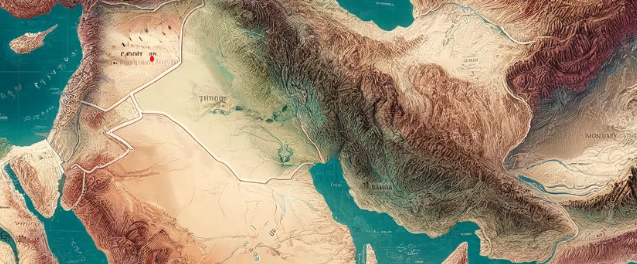| Listen to our audio presentation: The Lingering Aftermath of World War II |
The recent updates on the escalating tensions between Israel and Iran have brought to light the complexities of geopolitical maneuvers in the Middle East. According to reports, Israel is not expected to initiate a strike against Iran before the end of the Passover holiday, which extends through April 30, 2023. This pause is influenced by multiple factors, including strategic considerations and international diplomatic efforts to stabilize the region and prevent further escalation.
In response to a recent attack attributed to Iran, which involved missiles and drones, Israel has expressed its intention to decide independently on its response. Prime Minister Benjamin Netanyahu has emphasized Israel’s sovereignty in defense matters, particularly in meetings with foreign leaders from the UK and Germany who advocate for restraint. Despite these discussions, the overarching sentiment from Israel’s leadership leans towards a response that underscores their commitment to national security, though the timing and nature of this response remain cautiously considered.
The United States, along with the European Union and G7 nations, is contemplating tighter sanctions on Iran to pressure it against further aggressive actions and to support Israel’s security needs without escalating into broader conflict. These proposed sanctions particularly target Iran’s missile and drone capabilities, following Iran’s direct attack launched from its territory, which marks a significant escalation in direct confrontations.
This situation remains fluid, and while Israel has held back its response temporarily, the decision reflects a broader strategy to balance immediate security needs with the broader implications of regional stability and international relations. The ongoing dialogue with international allies and the strategic assessment of military options underscore the complexity of ensuring security while preventing a full-scale regional conflict.
As Israel grapples with a recent attack from Iran, Prime Minister Benjamin Netanyahu underscores the nation’s autonomy in response decisions, even as global leaders call for restraint. This article delves into the strategic pause in military actions Israel is observing during Passover, the international diplomatic efforts to prevent further escalations, and the looming possibility of increased sanctions against Iran.
Historical Context
The tension between Israel and Iran has been a significant aspect of Middle Eastern geopolitics for decades. Historically, this relationship has been fraught with proxy conflicts, accusations of nuclear proliferation, and ideological clashes. This backdrop is essential for understanding the current escalations and the international efforts aimed at mitigation. The evolving nature of their confrontations, now involving direct missile and drone attacks, marks a significant shift from the more covert actions typically seen in the past, reflecting both advancements in military technology and increasing direct confrontation risks.

